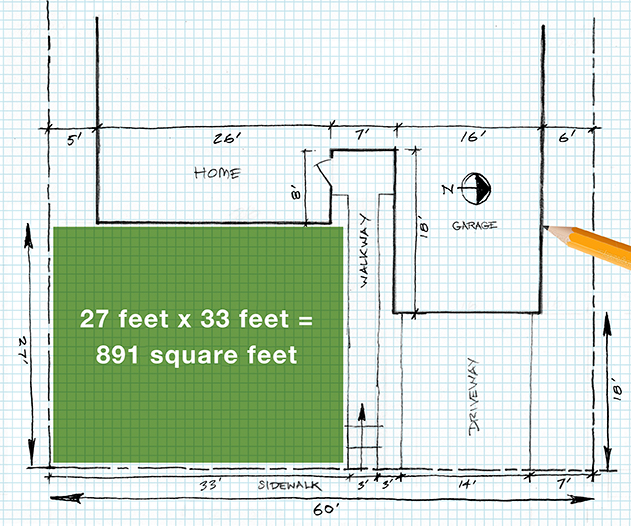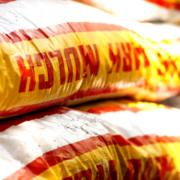When using mulch in your landscaping, how much mulch do you need? It depends on what job you want it to perform.
- To hold in moisture and keep down weeds: Use three to six inches of mulch on top of the soil.
- To maintain planting beds: Maintain two to four inches of mulch on beds at all times.
Remember to keep mulch one to six inches away from plant stems. Mulch can cause plants to rot.
How Much Mulch Do I Need?

A few simple measurements and calculations will help you determine your mulch needs. Graphic: Water Authority
You first need to know these numbers:
- Square footage of your landscaping
- Thickness of your mulch cover in inches
Then take your square footage, multiplied by mulch thickness, and divide it by 12. This will give you your amount of mulch in cubic feet.
For instance, 891 square feet of land, multiplied by one inch of mulch, divided by 12 = 74.25 cubic feet of mulch.
Avoid These Mulch Types Around Plants
Inorganic mulches don’t decompose to feed soil microbes and keep your plants and garden healthy and thriving. There are also some organic mulches containing dyes or other chemicals. Other mulches, such as shredded redwood, take a very long time to break down. These are the types of mulches you should use only in areas without plants, such as in pathways or dry decorative areas:
- Shredded redwood
- Dyed wood mulch
- Decomposed granite
- Gravel
- Rubber pellets
Read more about sustainble landscaping: Take The Soil Test
This article was inspired by the 71-page Sustainable Landscapes Program guidebook available at SustainableLandscapesSD.org. Hardcopies are available free of charge at the Water Authority’s headquarters, 4677 Overland Ave., Kearny Mesa. The Water Authority and its partners also offer other great resources for landscaping upgrades, including free WaterSmart classes at WaterSmartSD.org.




